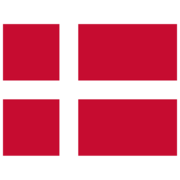Fiscal subject related
Denmark has implemented the European standard on e-invoicing (EN-16931) using the Universal Business Language (UBL) 2.1. The national standard, known as OIOUBL, is based on UBL 2.0. The country also utilizes the Peppol BIS Billing 3.0 format and the NemHandel platform for e-invoicing. This comprehensive system ensures seamless electronic transactions and adherence to European standards.
Furthermore, Denmark's e-invoicing system incorporates the OIO Reliable Asynchronous Secure Profile (OIORASP) for secure and reliable electronic communications between public entities and their suppliers. This infrastructure supports efficient and secure invoicing processes, promotes transparency, and reduces administrative burdens.
Currently, e-invoicing in Denmark is well-developed but not yet mandatory for B2B transactions. Businesses can issue invoices in several ways, including:
- Paper-based invoices
- PDF invoices with an e-signature or a complete audit trail
- Electronic Data Interchange (EDI)
However, this will change soon due to the adoption of the "Bookkeeping Act" in 2022, which mandates digital bookkeeping. Under this new law, accounting, including invoicing, must be conducted digitally using either:
- Digital bookkeeping software is certified by the Danish Business Authority (Erhvervsstyrelsen, or ERST).
- An individual digital bookkeeping solution was developed in compliance with the law.
This law covers all accounting processes, and as a result, B2B e-invoicing will become mandatory, similar to the existing requirements for B2G transactions. E-invoices will need to be transmitted through either the public NemHandel platform or the Peppol network, using formats such as Peppol BIS 3.0 (EN16931-compliant) or the local OIOUBL format, which will also be updated to be EN16931-compliant.
The implementation of the Bookkeeping Act will follow a staged roll-out based on company size and the type of digital bookkeeping solution adopted. The timeline for compliance is as follows:
- January 1, 2024: Publication of all certified digital bookkeeping systems.
- July 1, 2024: Medium and large companies using certified accounting software.
- January 1, 2025: Medium and large companies using custom software.
- January 1, 2026: Financial companies of any size and personally-owned companies with an annual turnover exceeding 300,000 DKK (~40,000 €) in 2024 and 2025.
"Medium and large companies" refer to those already required to submit an annual report under the Annual Accounts Act. Invoices must generally be archived for five years.
Other news from Denmark
Denmark Launches SAF-T 2.0
 Denmark
Author: Ivana Picajkić
Denmark
Author: Ivana Picajkić
Denmark has introduced SAF-T 2.0, an updated Standard Audit File for Tax that standardizes transaction-level accounting data and improves transparency, interoperability, and automated data exchange between businesses, auditors, and public authorities. From 1 January 2027, registered digital accounting systems must support SAF-T 2.0, supporting future automated reporting and data-driven compliance... Read more



Denmark: Government to Study Possible VAT Cut on Food from 2028
 Denmark
Author: Ivana Picajkić
Denmark
Author: Ivana Picajkić
Denmark has reached a political agreement to analyse VAT-based measures to reduce food prices from 2028, including either lowering VAT on all food or removing VAT on fruit and vegetables, with DKK 6 billion per year earmarked for one option. No changes apply yet, as the government will complete its analysis and consultations by the second half of 2026 before deciding whether—and how—to implement a... Read more



Denmark Considers Cutting VAT on Food but Faces Structural Challenges
 Denmark
Author: Ivana Picajkić
Denmark
Author: Ivana Picajkić
Denmark plans to reduce VAT on basic foodstuffs from 2028 and is currently debating whether the cut should apply to all food or be limited to fruit and vegetables, marking a major departure from its long-standing single 25% VAT rate model. While both options are permitted under EU VAT rules, each would increase compliance complexity, and the government has indicated that any change will require a... Read more



Denmark: OIOUBL 2.1 – Schematron version 1.17.0. 1.17.0. RC
 Denmark
Author: Ivana Picajkić
Denmark
Author: Ivana Picajkić
Denmark has released OIOUBL 2.1 Schematron v1.17.0 (Release Candidate), introducing stricter tax code consistency checks, enhanced Peppol VAT code alignment, and mandatory currency validation on amount fields. The final version is expected in mid-February 2026, with mandatory implementation by 15 May 2026, giving businesses additional time to test and adapt their invoicing systems. The Danish Busi... Read more



Denmark: Digital accounting obligations from 2026
 Denmark
Author: Ivana Picajkić
Denmark
Author: Ivana Picajkić
From 1 January 2026, Denmark’s Bookkeeping Act will require VAT-registered businesses with turnover above DKK 300,000—including foreign VAT-registered entities—to use compliant digital accounting systems instead of paper-based records. These systems must support structured e-invoicing (OIOUBL/Peppol BIS), digital archiving, and SAF-T generation, with non-compliance subject to supervision by the Da... Read more



Denmark Moves Forward With Digital Bookkeeping as OIOUBL 3.0 is Cancelled
 Denmark
Author: Ivana Picajkić
Denmark
Author: Ivana Picajkić
In 2026, Denmark completes the final rollout of its Digital Bookkeeping Act, extending mandatory electronic accounting and invoicing to around 118,000 additional businesses from 1 January 2026, with in-house systems granted a transition period until 1 July 2026. At the same time, the planned OIOUBL 3.0 e-invoice format has been formally cancelled, creating short-term technical uncertainty as autho... Read more



New document was uploaded: EV-chargers from the Fiscalization Perspective in Denmark
 Denmark
Author: Ivana Picajkić
Denmark
Author: Ivana Picajkić
The purpose of this document is to explain rules regarding the treatment of EV chargers for electric vehicles in Denmark in relation to fiscalization. The document will explain whether they are subjects of fiscalization or not, whether there are some special rules and regulations, or if there are some special rules. Read more
Subscribe to get access to the latest news, documents, webinars and educations.
Already subscriber? Login

